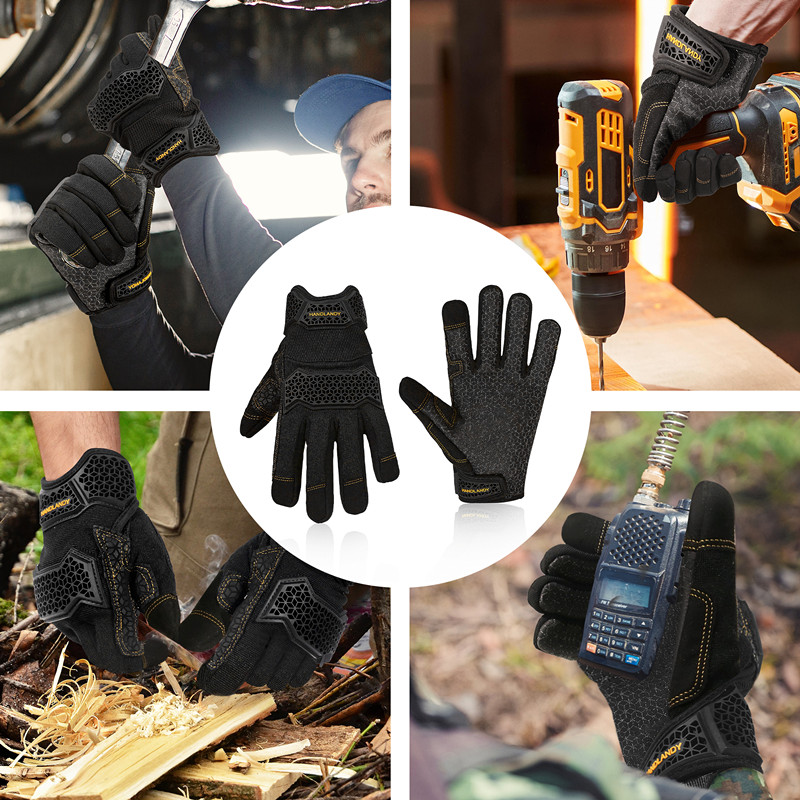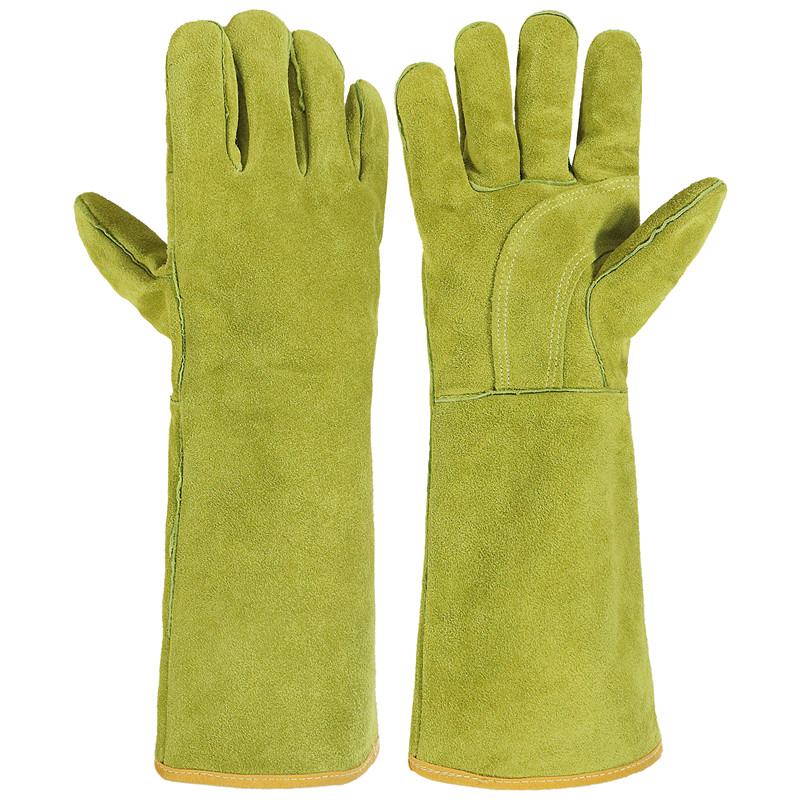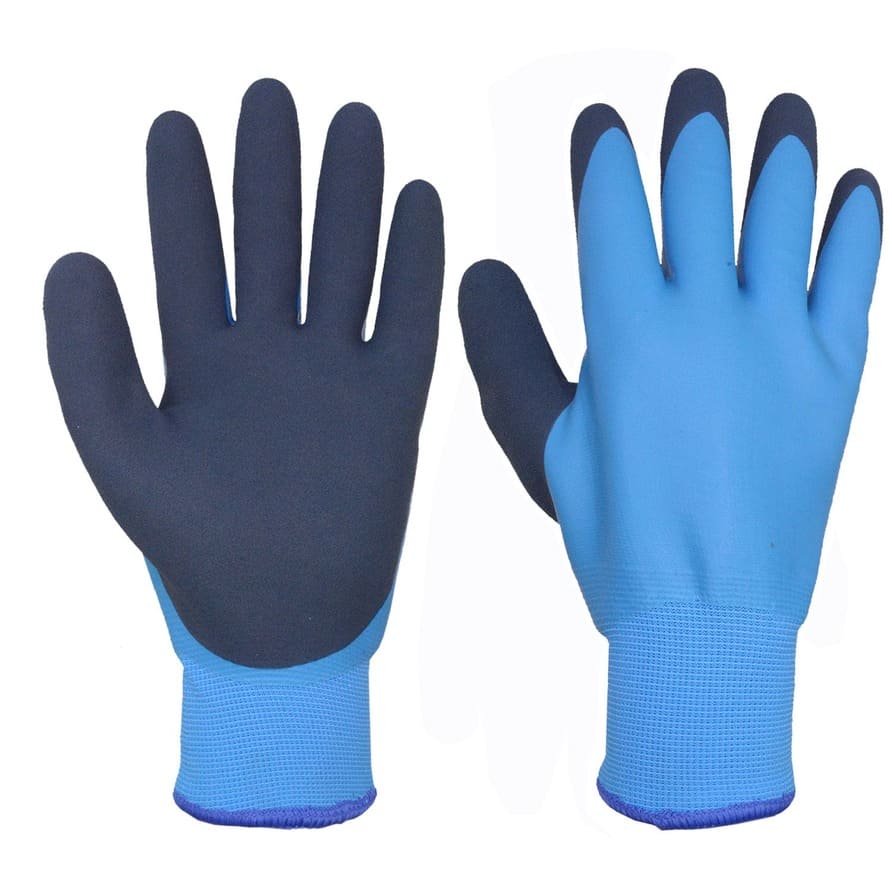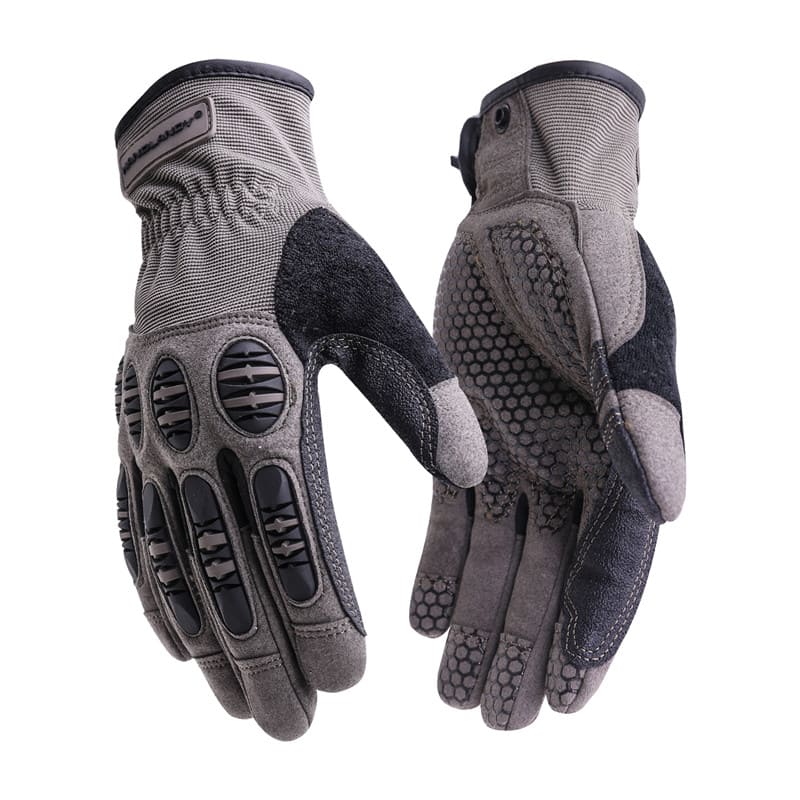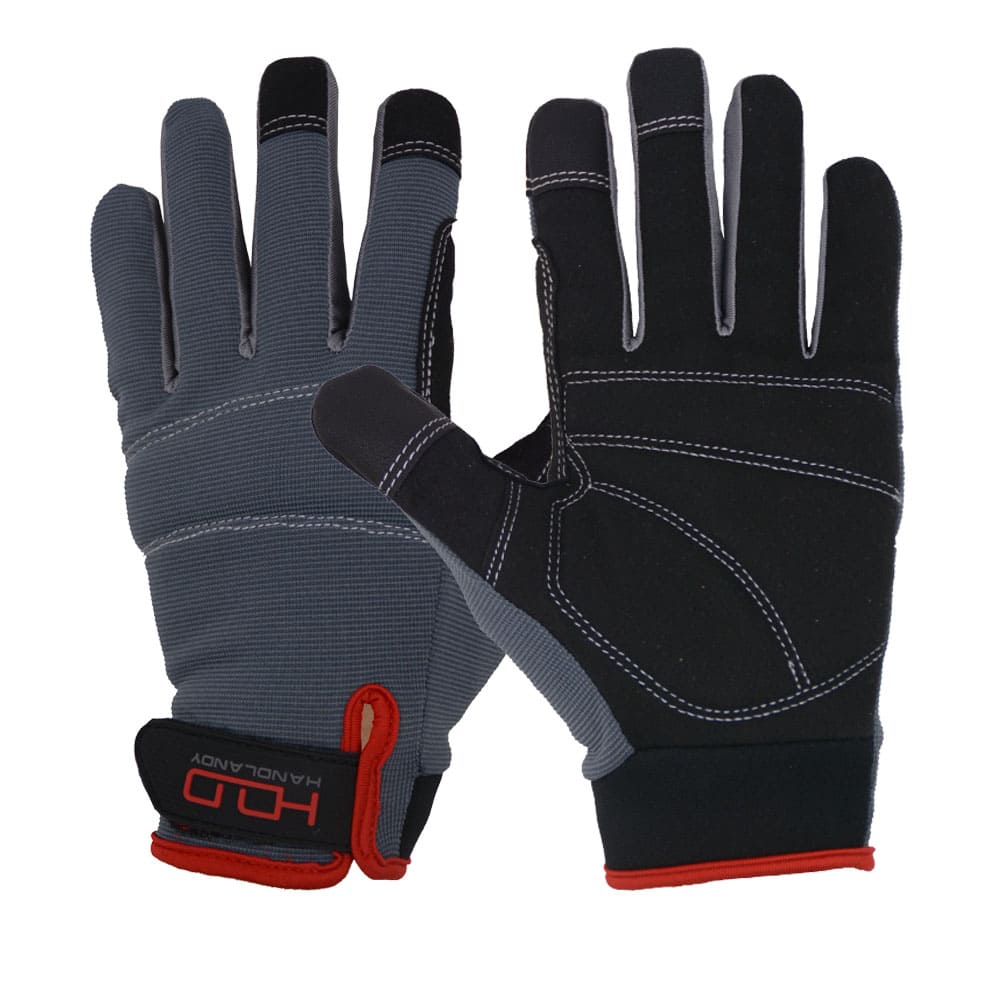Leather mechanic gloves offer great durability, heat protection, and abrasion resistance, while synthetic gloves provide superior dexterity, breathability, and are easier to maintain. Choosing between leather and synthetic gloves depends on your specific work needs, including protection, comfort, and budget.
With over 20 years of experience in glove production and sales, I’ve compared the advantages and disadvantages of both materials to help you decide clearly.
1. Leather Mechanic Gloves: Pros and Cons
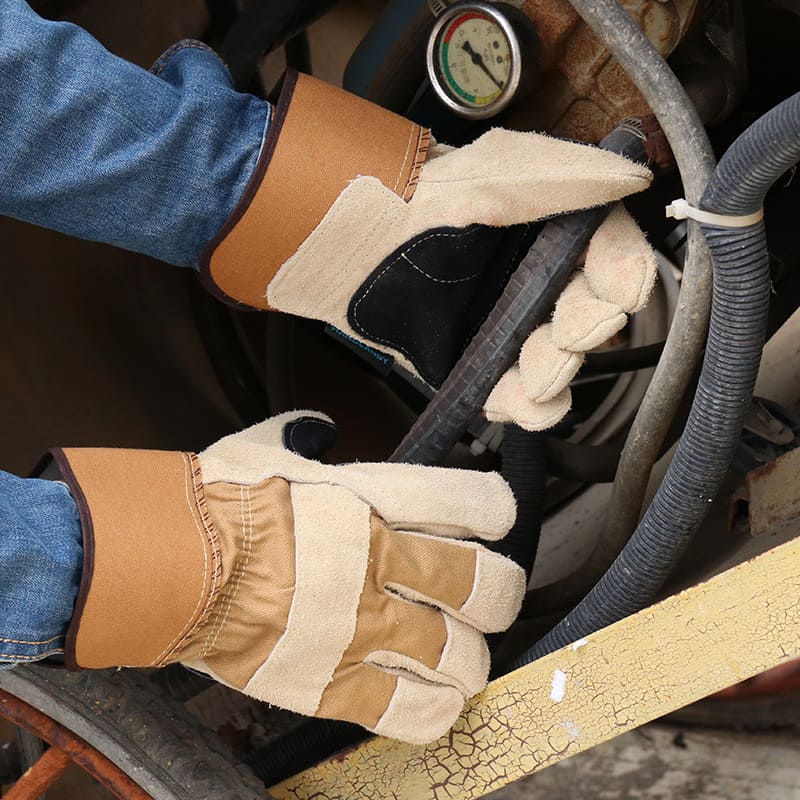
Advantages of Leather Gloves:
- Durability: Leather is strong and withstands rough usage well.
- Heat Resistance: Excellent protection against heat and sparks, ideal for welding or heavy machinery.
- Abrasion Resistance: Suitable for handling sharp and rough objects.
Disadvantages:
- Less Dexterity: Can be stiff, limiting precise hand movements.
- Poor Moisture Management: Absorbs water, causing gloves to become uncomfortable when wet.
- High Maintenance: Requires regular care to maintain flexibility and prevent cracking.
2. Synthetic Gloves: Pros and Cons
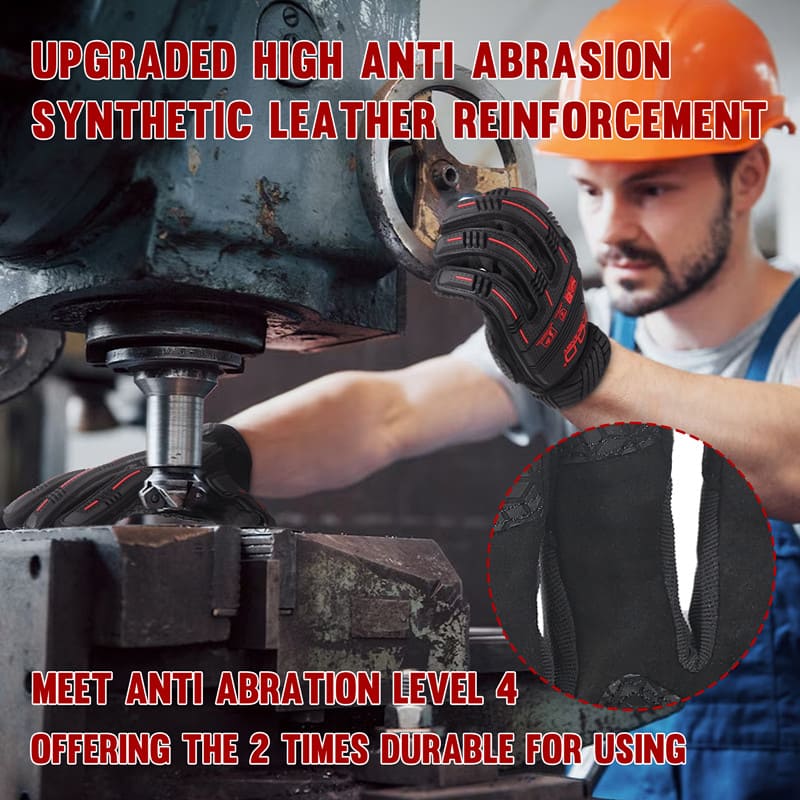
Advantages:
- Better Dexterity: Allows easier handling of small parts or tools.
- Improved Breathability: Keeps hands cool and reduces sweating.
- Low Maintenance: Usually machine-washable, easy to clean, and quick to dry.
Disadvantages:
- Lower Heat Resistance: Less suitable for extreme heat or welding.
- Reduced Durability: May wear out quicker than leather gloves with frequent heavy-duty use.
3. Quick Comparison Table
| Feature | Leather Gloves | Synthetic Gloves |
|---|---|---|
| Durability | ⭐⭐⭐⭐⭐ | ⭐⭐⭐ |
| Heat Resistance | ⭐⭐⭐⭐⭐ | ⭐⭐ |
| Dexterity | ⭐⭐ | ⭐⭐⭐⭐⭐ |
| Breathability | ⭐⭐ | ⭐⭐⭐⭐⭐ |
| Maintenance | ⭐⭐ | ⭐⭐⭐⭐⭐ |
| Cost | Higher | Lower |
How to Choose the Right Material?
Consider these questions:
- Do you handle sharp or hot objects regularly?
Choose leather for superior protection. - Do you need fine control and flexibility?
Synthetic gloves offer greater dexterity for detailed tasks. - Are you working in hot climates or indoors?
Synthetic materials may be more comfortable. - Is glove maintenance important?
Synthetic gloves are easier to care for.
Expert Tip (20+ Years of Experience)
For general automotive repair and maintenance, synthetic gloves usually perform best. But if you’re doing tasks that involve welding, sharp metals, or heavy tools regularly, high-quality leather gloves are your safest bet.
Conclusion
Both leather and synthetic gloves have strengths and weaknesses. Leather gloves offer toughness and heat protection, while synthetic gloves provide flexibility, comfort, and easier care. Understanding your work environment and tasks will guide you toward the best glove choice for your needs.
Need personalized glove recommendations? Comment below, and we’ll be happy to help!

